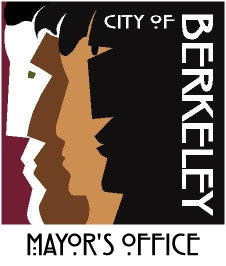Berkeley Council Recognizes Berkeley as the Ancestral Homeland of the Ohlone People
BERKELEY, CA - Last night, one day after Indigenous People’s Day, the Berkeley City Council unanimously adopted a resolution recognizing Berkeley as the ancestral, unceded home of the Ohlone People.
“30 years ago Berkeley became the first city in America to replace Columbus Day with Indigenous People’s Day,” said Mayor Jesse Arreguin, who co-sponsored the item introduced by Councilmember Sophie Hahn. “Today, we reaffirm our commitment to the Ohlone People and recognize their historic roots to the land that we now occupy. Through this resolution we hope to raise awareness of the plight of the Ohlone People and indigenous peoples throughout the country, in the hope that we may someday heal centuries of injustice that was committed against them”.
The resolution further requires a land acknowledgement statement to be read at the beginning of Council meetings, which recognizes and honors the original inhabitants of Berkeley.
Berkeley became the first city in the country to recognize Indigenous People’s Day, which started in 1992 to commemorate the quincentenary of Christopher Columbus’ arrival to the Americas. Since then, Indigenous People’s Day has been adopted by countless jurisdictions, including 20 states. California adopted Indigenous People’s Day in 2019.
The Lisjan Ohlone People lived in the territory of Huchiun, which today primarily consists of the East Bay of the San Francisco Bay Area. They lived among this land for thousands of years, creating robust societies long before European settlers arrived in what is now California. Throughout the mid 19th century, around 80% of indigenous peoples in California were wiped out through enslavement, compulsory assimilation, disease, starvation, and massacres. Despite this genocide, the Lisjan community forms a diverse and vibrant constellation of tribes and families that utilizes a wide array of survival strategies to navigate a profoundly altered 21st century world. The Lisjan continue to revitalize their cultural practices and uphold their responsibilities to protect and care for their ancestral homeland.
